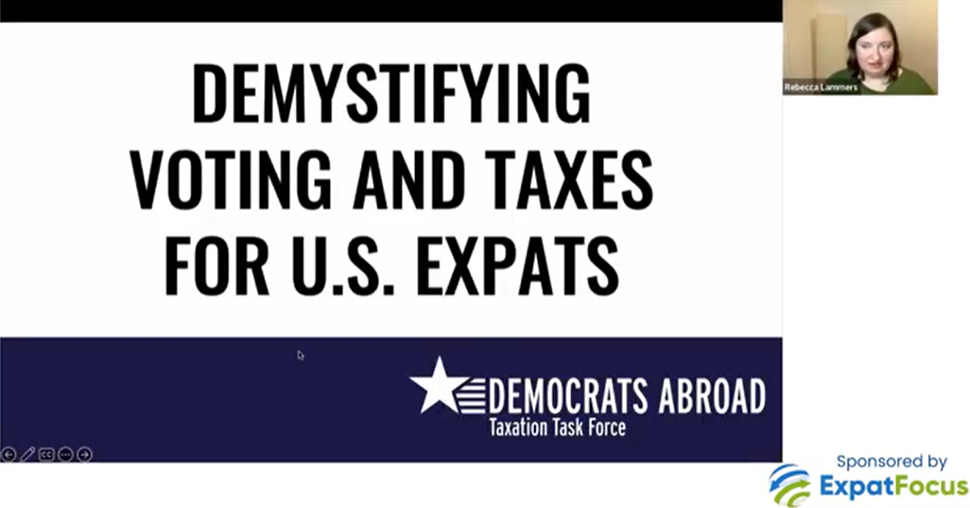At the 2024 US Expat Finance Conference, Rebecca Lammers, Chair of Democrats Abroad Taxation Task Force, delivered an enlightening presentation on voting and taxes for American expatriates. The virtual event, part of a three-day conference covering various financial aspects for Americans living abroad, aimed to clarify common misconceptions and provide valuable insights.
Voting Rights and Tax Obligations
Lammers began by addressing the relationship between voting and taxes, emphasizing that voting in federal elections does not make one liable for state taxes. She clarified that all US citizens, regardless of their residency status or duration abroad, have the right to vote in federal elections. This right is protected under the Uniformed and Overseas Citizens Absentee Voting Act (UOCAVA).
Federal vs. State Taxes
A key point highlighted was the distinction between federal and state taxes. While all Americans must file federal tax returns if they meet certain income thresholds, state tax liability depends on individual state laws and definitions of residency. Lammers stressed that voting cannot be used as the sole criterion for determining state residency for tax purposes.
Voting from Abroad
The presentation covered the process of registering to vote from abroad, recommending the use of votefromabroad.org. Lammers advised expatriates to request email ballots for faster processing and to be aware of state-specific rules regarding voting in state and local elections.
State Residency and Tax Implications
Addressing concerns about tax implications, Lammers explained that some states, like California and Virginia, are known as “sticky states,” making it difficult to prove non-residency. She encouraged attendees to research their state’s specific residency definitions and contact state tax authorities for clarification.
Advocacy for Tax Reform
The webinar also touched on the work of Democrats Abroad in advocating for tax reform, including a push for residency-based taxation. Lammers mentioned upcoming opportunities for expatriates to engage with the IRS through online problem-solving days and the Taxpayer Advocacy Panel.
In conclusion, Lammers emphasized the importance of expatriate votes in close elections and encouraged attendees to stay informed about their voting rights and tax obligations. The session ended with a Q&A, addressing specific concerns from attendees about voting registration, state residency, and tax filing requirements.
This informative webinar served as a valuable resource for American expatriates navigating the complex intersection of voting rights and tax obligations, highlighting the ongoing efforts to simplify and improve the system for Americans living abroad.

